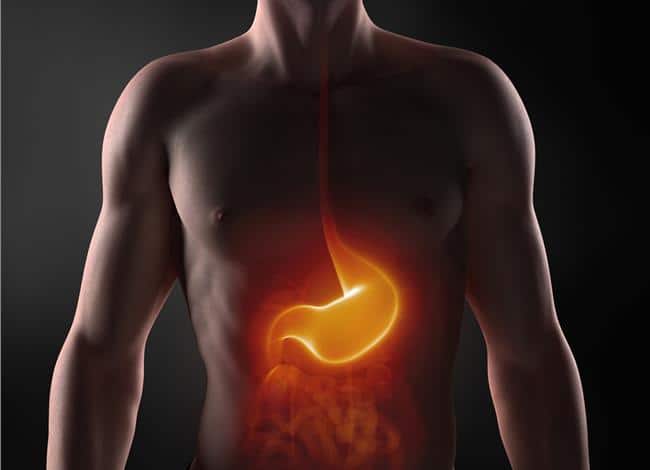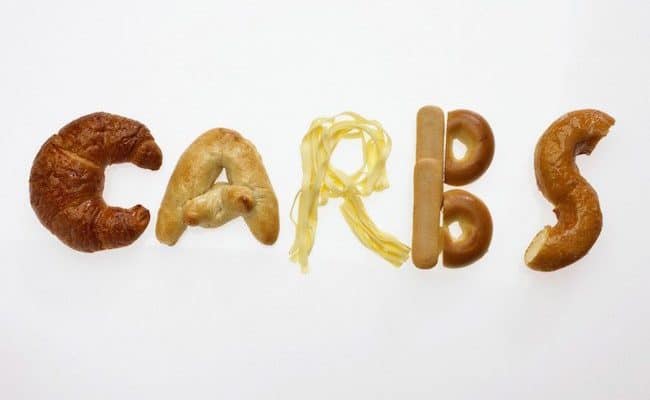
The average human stomach is about the size of your fist when it’s empty. When you eat, the stomach can expand to hold about 4 cups of food. The stomach serves as a holding tank for food as the walls of the stomach mechanically churn the food and release hydrochloric acid. The food is then released into the small intestine for absorption.
The stomach size can expand or shrink depending on how much food someone eats, but binge eating can affect this more than body size.
What is more impactful is the change in how someone regulates feeling full or hungry. Your stomach may appear to shrink, but what should shrink the most with weight loss is the visceral fat layer around your midsection which is the deep layer of fat around your organs.
Dramatic diet change can have an affect on stomach size
One study found that after a very low calorie diet of about 600 calories per day for 4 weeks obese subjects had a reduced stomach capacity between 27-36%.
This suggests dramatically altering your food intake could influence the actual size of the stomach, but there is some individual variability with this.
If you cut back your food intake a smaller amount, your actual stomach size probably won’t be affected.
Another study from 2001 found that binge eating was more related to stomach capacity than body weight.
Researchers measured gastric capacity in normal weight, obese and bulimic women. They found the bulimic group had the largest stomach capacity. Within the obese group, those who reported binge eating had a gastric capacity similar to the bulimics and the non-binge eaters were similar to normal weight women.
Dramatically increasing or decreasing your food intake can affect the actual size of your stomach. However, this can happen up to a certain extent. Your stomach size is not going to get cut in half if you cut your calorie intake.
Most likely is you dramatically cut your calorie intake, your stomach size could change about one fourth to a third its size.
Your stomach area fat mass is the priority
What should change with weight loss is your mid-section area in general. Losing visceral fat around your mid-section should be a priority for weight loss not trying to shrink your actual stomach organ.
Excess fat stored around your organs can be a concern for increasing risk for cardiovascular disease and type 2 diabetes. If your waist circumference or your waist to hip ratio is higher than it should be, focus on getting these numbers down with a healthy diet and exercise plan.
Appetite and fullness changes
Another dramatic thing that can change with weight loss or any long term change in your eating habits is your sense of feeling full or being hungry. It’s hard to measure exactly how much someone’s actual stomach may shrink or get bigger from weight gain.
What can be an easier gauge for change is how much food you eat before you stop eating.
If binge eating is a struggle, a part to a healthy weight and relationship with food will require getting in tune with your body. Listen to your body telling you when you’re full not super stuffed; eat when you’re hungry. Don’t eat out of emotional triggers.
As weight loss happens, you may notice you feel full sooner. That may or may not be because your stomach has “shrunk”. It may just be because you are tuning into the signals your body is sending your brain, and you don’t feel the need to eat past being comfortable.
Hormone regulation
A very large player in appetite regulation is hormones. Hormones are the body’s messenger system, and they play an integral role for many body functions.
The digestive system releases hormones back and forth to the brain to signal when you’re hungry and when you’re full. Other hormones are released from fat cells, like leptin, to the brain to help regulate food intake for a longer time frame.
For example, as someone gains fat cells, leptin levels increase. The change in leptin levels signals the brain that you don’t need as much food because you have extra storage.
However, sometimes there is a resistance to leptin in the brain so the signal doesn’t get through.
Stomach size, appetite cues from the environment and hormones released from the digestive tract all help signal to the brain for energy input.
As weight loss happens, hormone levels that affect food intake should change.
Conclusion
Your actual stomach size may shrink with weight loss, but a more important factor for stomach size can be binge eating. If you dramatically change your food intake up or down, stomach size can be affected. However, what may be a more important factor is your feeling of being full or hungry will also change.
Your “stomach” meaning your mid-section should shrink with weight loss, especially if you have a high waist to hip ratio. Focus on targeting excess fat in your mid-section instead of shrinking your actual stomach.
Hormone regulation is tightly tied to hunger and satiety cues. These levels can change with weight loss too which can influence how much food you eat.
References used in this article










